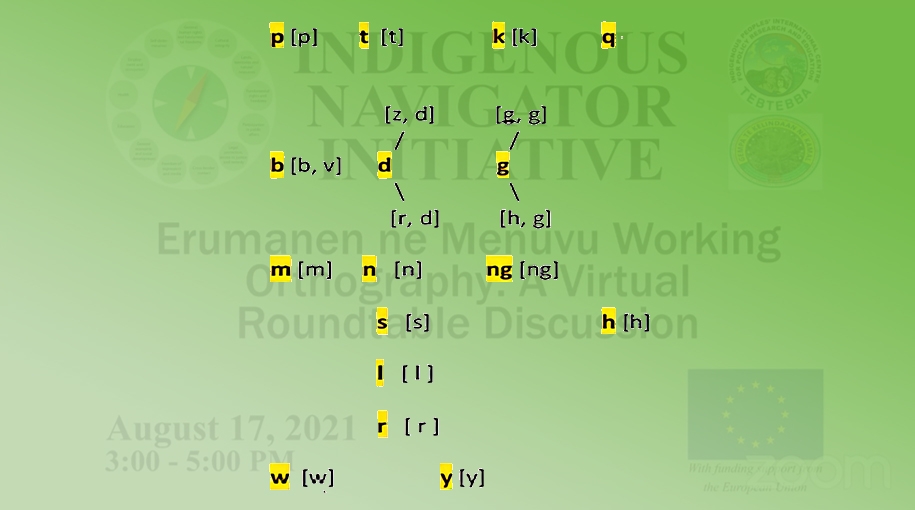“Hindi lahat ng mga tao at mga propesyunal ay nag-commit ng suporta. Mabibilang mo lang sa daliri ng kamay ang talagang tumutulong at tumututok (Not all people and institutions are committed. Only a precious few professionals really engaged and invested).”
Jojo Ambangan, Secretary General of Erumanen ne Menuvu Kamal, shared the challenges they encountered in writing their orthography during the Virtual Roundtable Discussion on 17 August 2021. A total of 60 participants joined the meeting including representatives from the Department of Education (DepEd), the National Commission for Indigenous Peoples (NCIP), the Summer Institute of Linguistics, civil society organizations, and indigenous peoples themselves.
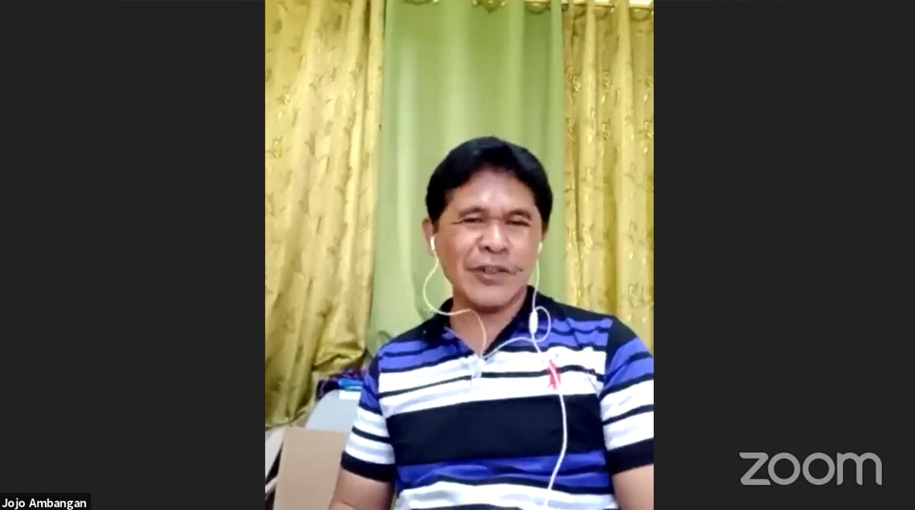
Jojo Ambangan, Secretary General of Erumanen ne Menuvu Kamal
Victoria Tauli-Corpuz, former UN Special Rapporteur on the Rights of Indigenous Peoples and Tebtebba executive director, commended the Erumanen ne Menuvu for the initiative. “This is a historic occasion as it is the first time that we are holding a virtual meeting on the work that indigenous peoples are doing to preserve their own languages. We wouldn’t have gone into this program if the Erumanen ne Menuvu themselves have not expressed the desire for this orthography to be done,” she said.
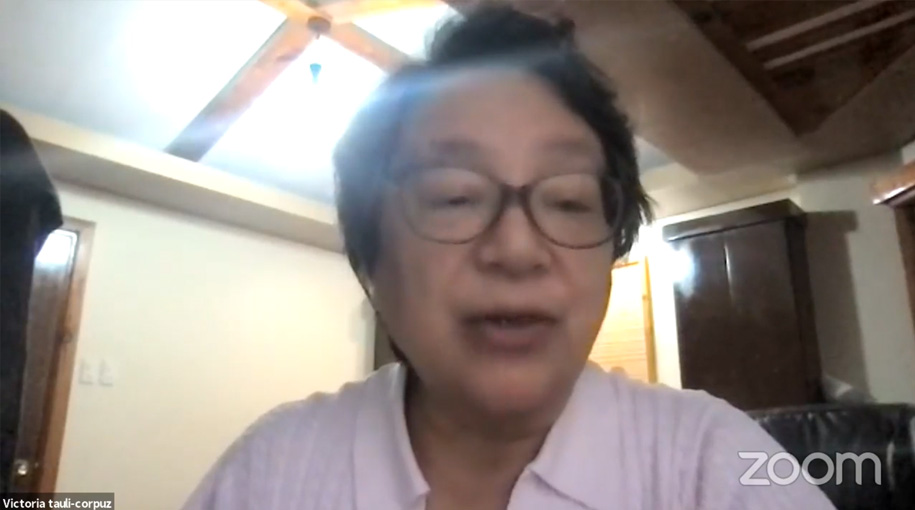
Victoria Tauli-Corpuz, former UN Special Rapporteur on the Rights of Indigenous Peoples and Tebtebba executive director
According to Bernice See, project coordinator of the Indigenous Navigator Initiative in the Philippines through Tebtebba, the working orthography is part of the effort to revitalize Indigenous Peoples’ languages, contributing to the attainment of the objectives of the International Decade of the Indigenous Languages.
“Through this, the community reported their language as safe as it is spoken by all generations and intergenerational transmission is uninterrupted,” she explained, congratulating the Erumanen ne Menuvu people for the orthography that aims to record, sustain, and promote the said indigenous language, not only for and among the present-day Erumanen ne Menuvu indigenous peoples but also for and among their future generations.
Dr. Billy Pobre, one of the key people responsible for the collation of the Erumanen ne Menuvu language orthography, did an in-depth presentation of the different elements including inflections, accents, glottal stops, and circumflexes of the indigenous language. "We started the orthography in 2012 and finished the first draft in 2015. It was through self-help and community contributions that we persisted. Through the support of the Indigenous Navigator Initiative in the Philippines, we were able to continue," he tearfully shared.
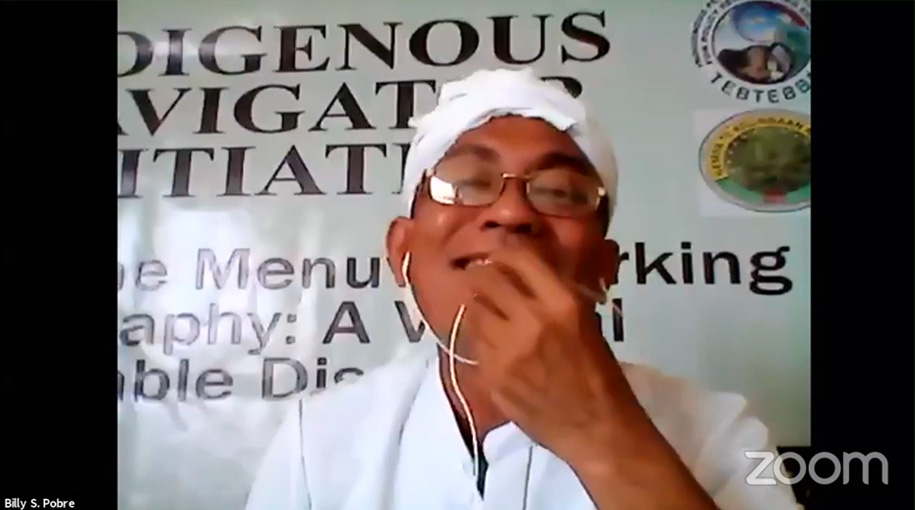
Dr. Billy Pobre
“We do it with the community, not only for the community,” stressed Dr. Ricardo Nolasco of the University of the Philippines-Mindanao who is a key partner in the initiative.
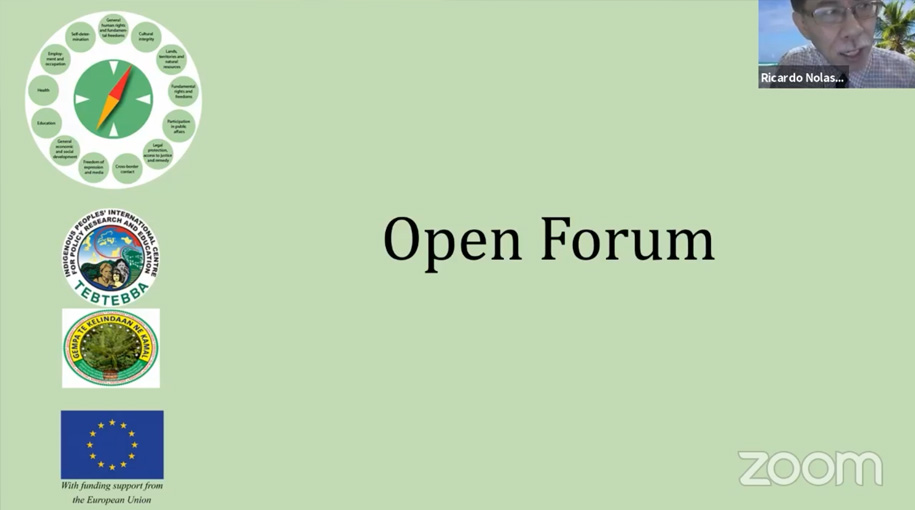
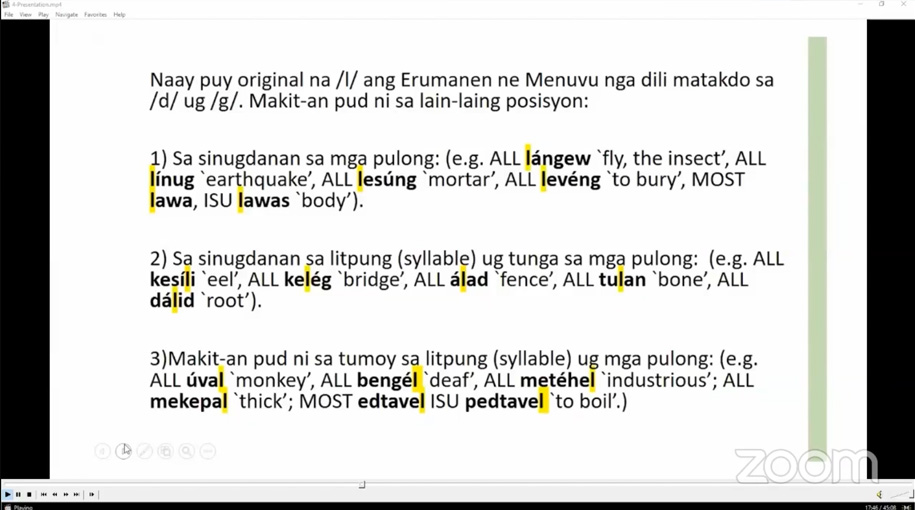
Jennifer Sibug-Las, NCIP Central Mindanao Commissioner, thanked the different partner advocates including Tebtebba who, according to her, has been consistently lobbying NCIP to discuss different burning issues of indigenous peoples. “Hindi kasi kaya ng NCIP na mag-isa lang (NCIP is not able to do this, alone),” she mentioned.
The said orthography is a project that was made possible through the efforts of the Erumanen ne Menuvu indigenous peoples with funding support from the European Union through the Indigenous Navigator Initiative and Tebtebba.


